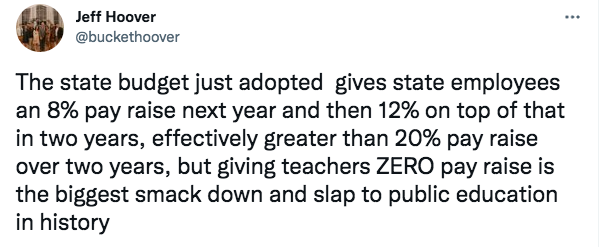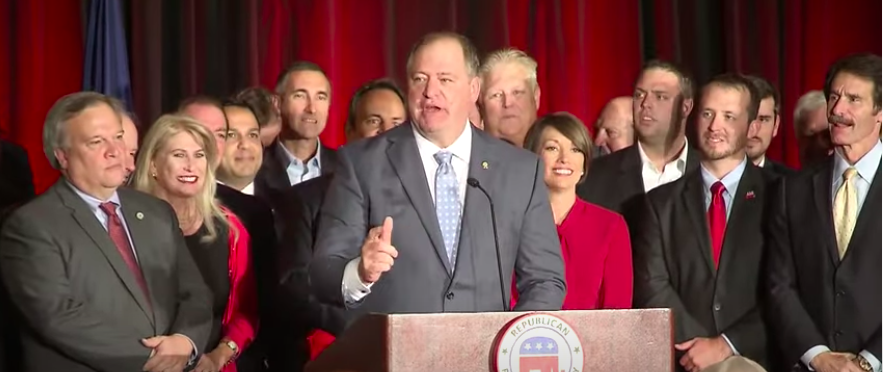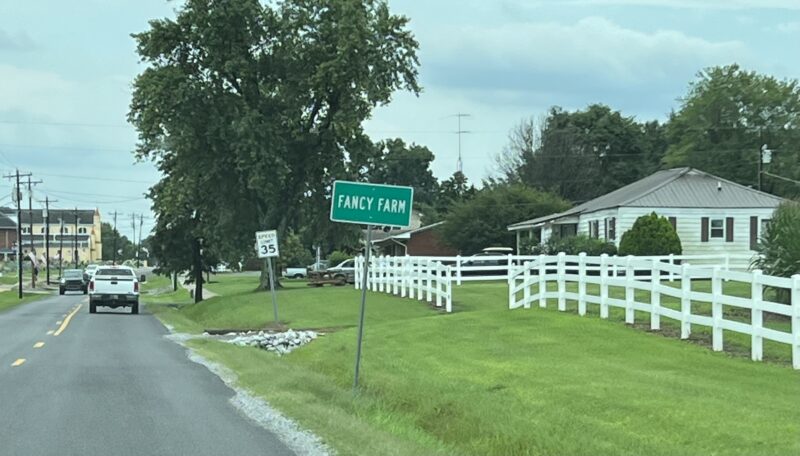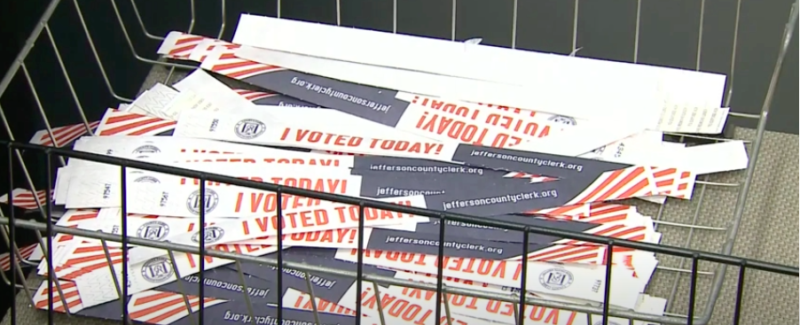As the Kentucky legislature passed a massive two-year state spending plan through Republican supermajorities in the House and the Senate, the former Republican House Speaker had harsh words for his former colleagues.
Former House Speaker Jeff Hoover, of Jamestown, Kentucky, spoke out on Wednesday night as lawmakers passed their version of the state spending plan that gave raises to state employees, but not to teachers.
“The state budget just adopted gives state employees an 8% pay raise next year and then 12% on top of that in two years, effectively greater than 20% pay raise over two years, but giving teachers ZERO pay raise is the biggest smackdown and slap to public education in history,” Hoover wrote on his Twitter account.
Hoover’s daughter and son-in-law are teachers, and he said he was saddened and hurt for them. The former House Speaker also questioned why lawmakers chose to give money to local school districts for them to give raises instead of giving the money directly to teachers.
“If we as a state truly valued education, if we valued our teachers, WE should have given them raises in the budget!!! This will offend some, I don’t care. It hurts me to my core to see our young educators like my daughter and son-in-law, and thousands more, not appreciated,” Hoover wrote.

Here are some of the highlighted points included in the two-year state budget sent to Gov. Andy Beshear.
· 8% raises for state workers on July 1, 2022, and additional raises based on a pay study for the following fiscal year
· $250 million in federal American Rescue Plan Act funds for clean drinking water
· Funds to provide social workers with a $2,400 pay increase in addition to the across-the-board raises
· Funds to increase the SEEK formula from the current $4,000 per student to $4,100 per student in the first fiscal year and to $4,200 in the second year
· $23 million to assist Kentucky State University with ongoing financial challenges along with a second appropriation of $15 million
· Funds to cover the full cost of all-day kindergarten at every public school district in the Commonwealth
· Funds to cover 70% of transportation costs for public schools
· $25 million in grants for county clerks for elections and deed recording online
· $150 million in fiscal year 2023-24 for a major overhaul of the state parks system
· Enough funds to cover 40 days of operations in the event of an emergency
On the House floor, Petrie said the budget makes “historic” investments in K-12 education, and higher education, according to a news release.
“It puts us at a little over 52% of our entire general fund budget being allocated in education,” Petrie said.
Senate Majority Floor Leader Damon Thayer, R-Georgetown, said the bill underscores differences in the chamber. He praised the plan as a “conservative budget” that reflects tough decisions and sets aside money for the budget reserve trust fund.
“Just because we have a surplus doesn’t mean we have to spend it all,” Thayer said. “We have to remember where this money comes from. It comes from the taxpayers. It comes from the hard-working people of Kentucky who every week have money taken out of their paycheck.”
Rep. Rachel Roberts, D-Newport, said her district in Northern Kentucky is losing teachers to Cincinnati, and she is fearful that the education appropriations may not be enough for school districts to give competitive raises.
In the Senate, Minority Floor Leader Morgan McGarvey, D-Louisville, praised many of the expenditures, but he criticized the budget for not funding universal pre-kindergarten. He said when adjusted for inflation, spending on education remains below levels prior to the 2008 recession and called the budget a “missed opportunity” overall, according to the LRC.
“This is our opportunity to make investments in the state that will reverberate 25 years from now,” he said. “This budget is the opportunity for people to look back 25 years from now and say, ‘that’s when they got this done. That’s when we got Kentucky moving in the right direction.’”
The House approved the executive branch budget by a 93-3 vote while the Senate approved the budget unanimously in a 35-0 vote.
The bill was sent to Beshear for his signature or veto. Lawmakers have given themselves a cushion by passing the bill before the veto recess leaving themselves time to overturn a veto by Beshear.




 Login
Login  Must include at least 8 charaters
Must include at least 8 charaters



